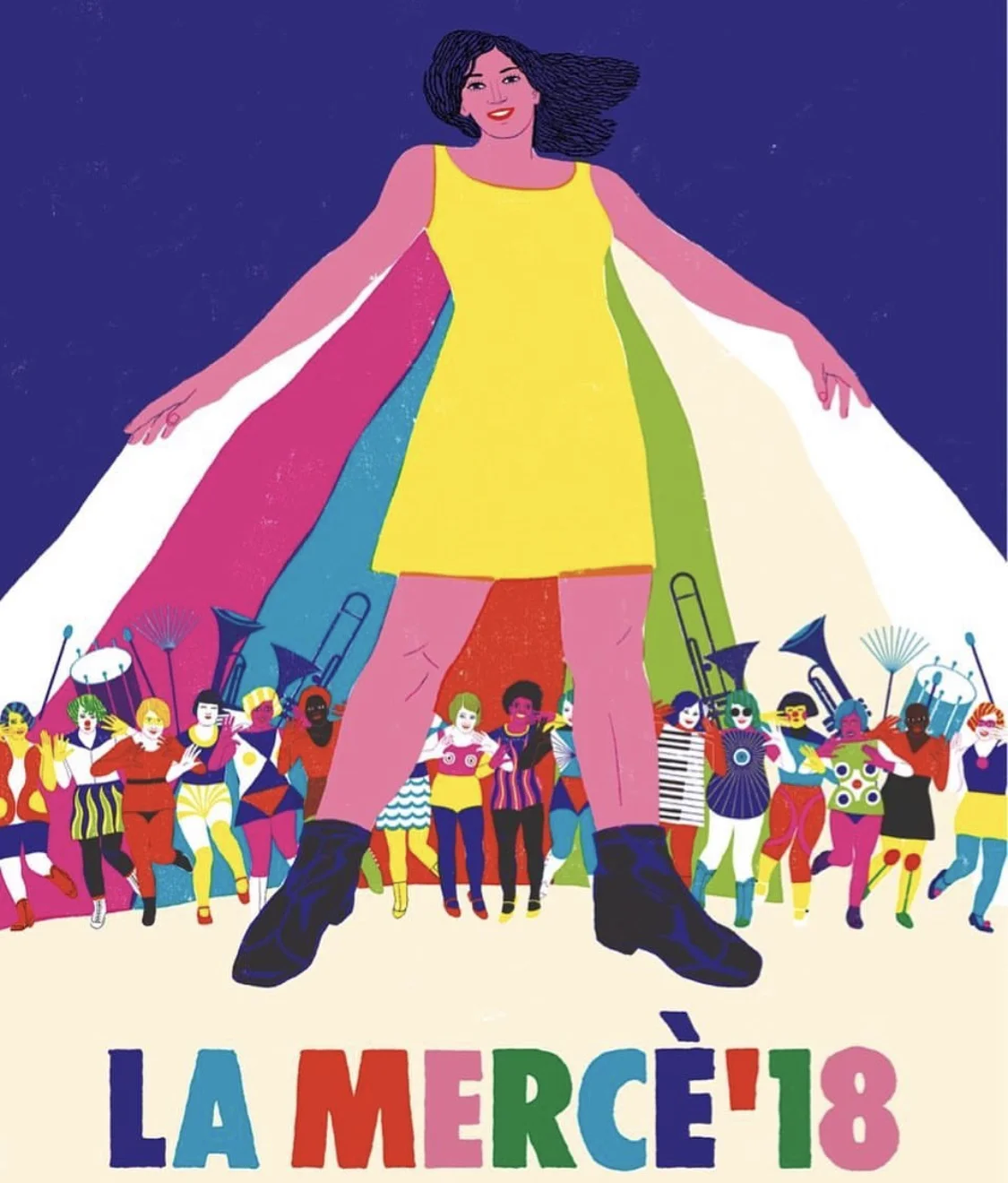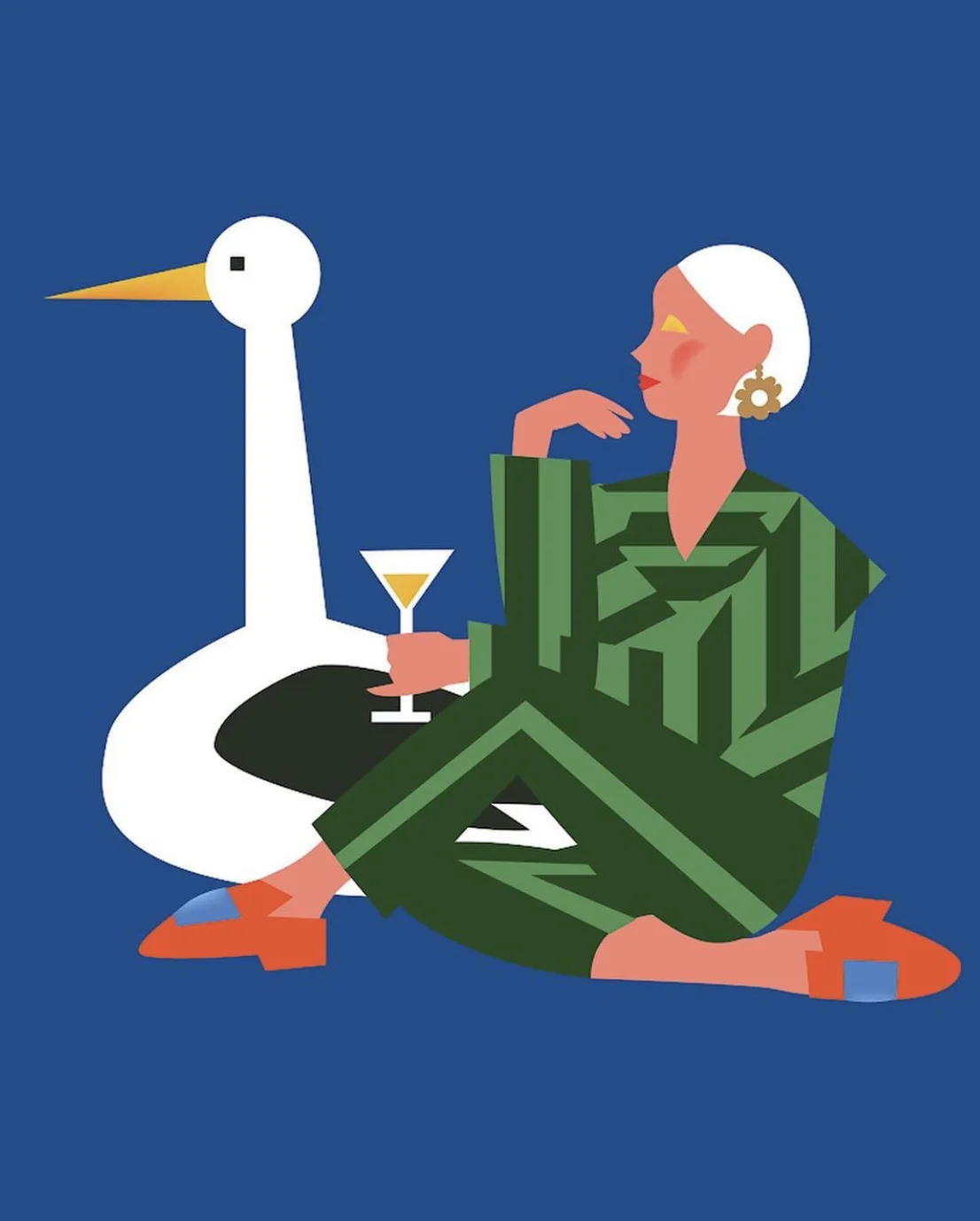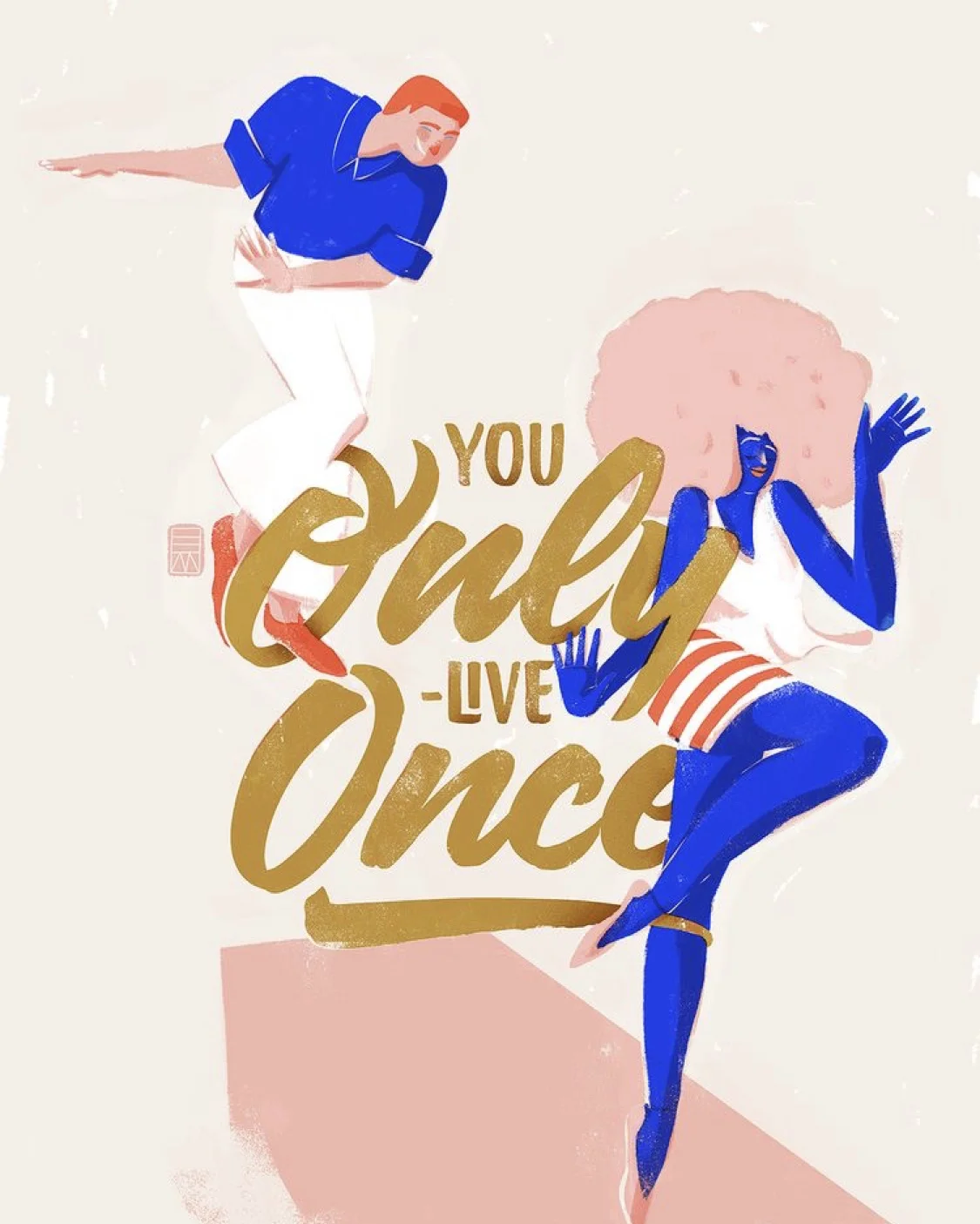Celebrating A Life Day IS a FULL BLOWN Oxymoron.
Art by Sonia Pulido
@soniapulidoillustration
shop.soniapulido.com
Stroke-a-versary, Cranio-versary, Brain Tumor Death Day, The Day I Almost Died, these are some of the names of traumatic events that have led you to the person you are today. To say that an anniversary of your brush with death is bittersweet would be like comparing a minor fender bender to a six car pile up. We really do not have words to describe how problematic and difficult this date can be. It is loaded with traumatic memories, knowledge of gaps in time that you cannot remember, and comparisons of your “old self” to your “new self”.
As a therapist, I dread the weeks leading up to someone’s anniversary. Especially, if their expectations of their “recovery” are not the same as their reality. This is a very painful place to be in and a hard place to hold space for. Directly after a big trauma you get a lot of healing quickly. You relearn to sit up, walk, eat on your own, and communicate, albeit slowly. As fundamental as these activities are they are still HUGE milestones. The first few months are filled with relief on all sides. Everyone on your team, from your family, to your doctors, to yourself are thrilled that you are alive. It permeates every single gesture and movement and celebration is not only easy, but difficult to refrain from. This gratitude and energy is one part of my job I cherish most. To see someone lift their head and look at me with clear understanding for the first time does something to your heart and soul. It really is a miraculous re-birth.
Here is the problem: you transition from a newborn to a full ass grown adult in a years time. That first anniversary a lot of my clients start to forget what happens. Anxiety begins to mount about a month before their life-date. Usually I can feel a regression starting and the expectations of their brain and body become less in line with progress. This is when a survivor completely blacks out what has happened to them and they begin to focus on what they do not yet have. It’s a recipe for disappointing plateaus, pain, and self pity.
The good news: this doesn’t have to be your story. You have the choice to make your story a celebration marking the beginning of your journey, while honoring the grief that it brought you. Your life took a huge left turn, but, it is still your life. There may be different views, but the same person is still interpreting each vista.
Ellie Suh is the illustrator of this. @suhelli_ee
elliesuh.com



